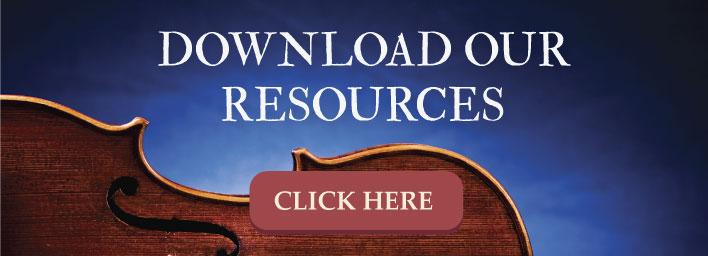How to Sell Your Original Music Compositions

The threshold question all composers have to answer before exploring how to sell their original compositions is: Who do they want to buy their music compositions?
You have three general options for answering this question:
- I want to sell to the audience, my people!
- I want to hear my music sung by recording artists and show up in other media (e.g., movies, videos, etc.).
- If someone is willing to pay me to compose, I'm there.
For this post, we're assuming you've got the compositions, and you've got professional recordings of them. If you try selling your music without having high-quality recordings, you're going to burn bridges before you had a chance to build them.
Alright, let's breakdown how to sell your music under each scenario.
Selling directly to the audience
So many musicians and music groups take this route to build a name and following for themselves. You have a variety of platforms on which you can sell your music directly from:
- your own e-commerce website. You have a variety of software choices that help you quickly build an e-commerce site or add an e-commerce component to your existing website. Many of the e-commerce frameworks, like Shopify, include functionality to fully-service consumers, such as secure payment processing, discount codes, and refund management.
- market platforms like iTunes, Google Play, SoundCloud, eBay, and Amazon Music.
- music-centric platforms BandCamp, Spotify, and Pandora.
Many of the market and music-only platforms require that you make your music available to them through a music distributor. The music distributor handles all the legalities and payment processing and often assists in the marketing of your music. Each music distribution company offers its own variety of payment options, which usually include a portion of your royalties going to the distribution company or you pay them a flat fee. They also offer a variety of additional services.
For example, RouteNote offers distribution services and assistance in setting up your own e-commerce site to sell your music. It also provides a service that scans YouTube for unauthorized uses of your music so you can get paid for their use. Distribution company ReverbNation includes a member-only marketplace where you can find a gig, signing, and collaboration opportunities, among a full-range of marketing and promotion tools.
Here's a short list of other online distribution companies to check out: TuneCore, CDBaby, DistroKid, and Level Music.
Getting your compositions in front of producers and publishers
In this scenario, you're not necessarily the musician. You want your compositions used commercially by others. In fact, you won't be the musician in most cases. You'll still need a quality recording of each piece, regardless of who's performing. The recording may not need to be the complete song, but enough to let a professional musician, publisher, or producer know if they want more.
This is a good time to clarify that when you sell directly to an audience or to a music industry professional for commercial use of your music, you're really licensing the work's use. Music licensing and royalties are intricate legal and business thickets. If you aren't hiring an attorney who will make sure you aren't inadvertently selling away your rights to your music, working through an online distribution platform is an excellent choice. Just make sure to read the details of their arrangement so you know what you're selling on their platform.
There are online platforms that specifically connect composers with publishers, like Kobalt Music and Soundgine. You can also contact music publishers directly. Here's a list of music publishers. There's an art to pitching your work to publishers, so don't spam them individually or send out a pitch blast to a bunch of them at once. You will want to have your own attorney review any contract you sign with a publisher.
Taking Requests - Composing for Hire
In our last scenario, you're looking for companies that hire composers. These could be video game companies or marketing content agencies, for example. They may hire composers as employees or as freelancers.
The critical issue here is that you'll be composing "works for hire." In the complicated world of music copyrights, "work for hire" is one area of relative clarity. When you compose a "work for hire," you don't own any of the copyrights to it. Your salary or freelance rate is your payment in full for the composition.
Offering your services as a composer for hire may be a great way for you to earn money for composing music while helping you refine your composition skills for your own compositions. Carefully review any "work for hire" contracts before signing them. Employment contracts especially may have an expansive take on what falls under the agreement, and you want to ensure work you do on your own time and with your own resources won't fall under the contract.
You can mix and match
You don't have to stick with one avenue for selling your compositions. These different sales scenarios may make sense for different compositions. Building an online following of people who like your compositions will be helpful under all three situations.
You may be selling the emotive experience of your music, but you're still selling. Selling is a business. Approach your efforts to sell your music compositions with the seriousness you're due as a professional composer.


